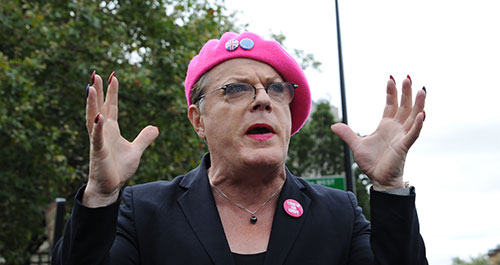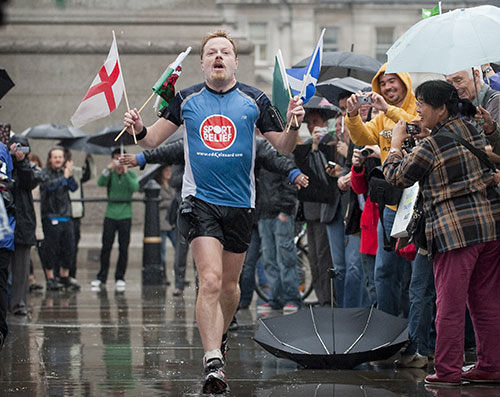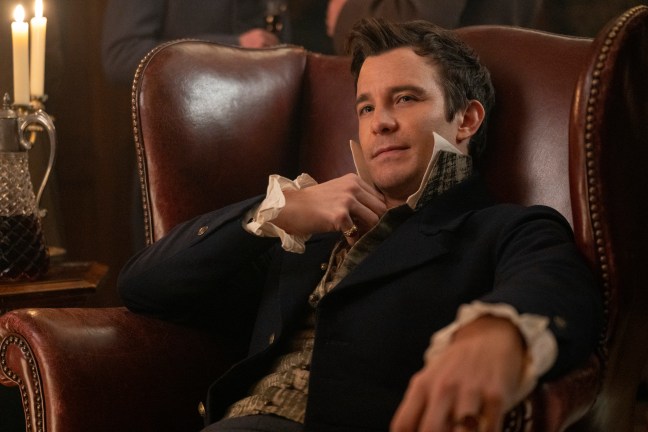When I was 16 I made a definite pact with myself to make a go of acting. I’d decided this at seven but I re-confirmed at 16, the way people renew their marriage vows. I’d made some headway with a decent part in a school play. I played a servant hand-cuffed – with a pair of manacles on a big chain – to one of the main characters, a duke. I had this huge helmet on, with a visor which I could make go up and down as if by magic. So I kept doing this, while sitting with the duke in a pub, trying to drink a beer through this intermittently rising and falling visor. My teacher said, that’s not really Shakespeare is it? But it got a huge reaction, big laughs. And that was my first experience of comedy.
I think, looking back, I started performing to get affection from the audience
My mother died when I was six. I got my first role in a Christopher Fry play when I was seven. I think, looking back, I started performing to get affection from the audience. That seems like a swap I did. I don’t want to think about whether I might have been a different person if my mum hadn’t died because the way my brain works I’d spend hours going through different scenarios with her in them, instead of not there, and it would be too painful.

I have some very vivid memories of my early childhood. I think that’s because my mum died – in the immediate years after I would bathe myself in these memories, then re-bathe, then re-bathe. I didn’t talk about it with my brother. But I went over them – ‘and then we came back from school and she was there… and then that Christmas we wrote those Christmas letters and she put them up the chimney… then we went to Sweden on holiday…’ I just kept re-painting and re-painting and I locked them all in. And they stayed with me. Lots of people tell me they don’t have any memories from before they were six. But I do. I have them painted brightly in.
I started using chemistry classes as a comedy practice tool. The teacher had a slow, methodical way of speaking and I started finishing his sentences. “We have sodium and we have chloride and we put it…” “In a bag?” “No, not in a bag. We put it…” “In your hat?” “Not a hat, just shut up.” So I was getting the laughs. I only recently found out my brother did exactly the same thing with the same teacher. I wasn’t an obviousromantic lead but I did think that comedically I was punching above my weight.
Even though I am transgender, I am one of the lesbians. So when girls came back to school after three years I was quite excited. But I didn’t impress them at all. “Hey, I’m not in the team, I don’t do much except the occasional bit of acting, do you want to go out with me?” I tried looking like a cool rebel by not doing any work but that didn’t impress them as they were all working very hard. Which annoyed the crap out of me. There was nothing interesting going on with my looks. I couldn’t master clothes. I was just about getting my acne together. I was just about discovering how hair dryers and brushes could stop your hair all going in one direction.
I describe myself as emotionally dead when I was 16. I could function; I could hang out, I could pass some exams, I could make people laugh. I was never brave enough to step in if someone was being bullied. I’d stand aside and hope someone else would come along and stop it. And then I’d feel ashamed. But if someone bullied me, I never cried. I just didn’t feel anything.











